Can Lazarus Lead His People to the Promised Land?
Winner of one of Africa’s most celebrated elections in history, Lazarus Chakwera discusses his political and economic vision for the country
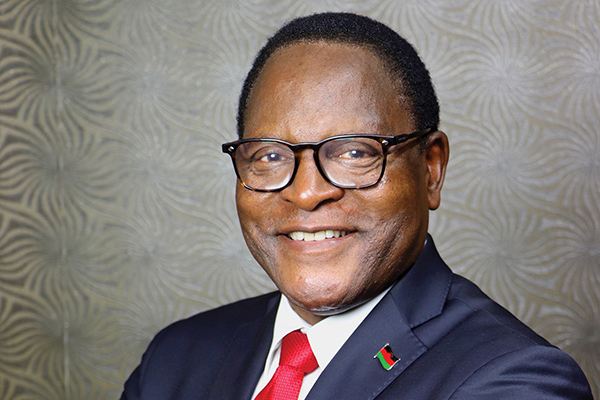
President Chakwera takes office with one of his country’s highest popularity ratings in decades.
Looking back, Malawi’s presidential election in June 2020 was one of the rare pieces of good news anywhere in the world that year. Not only did a diverse and inspiring coalition of nine parties come together under Lazarus Chakwera to gain nearly 60% of the vote — a clear victory for the people’s democratic will — but they did so amidst a backdrop of extreme political fragility. After the incumbent Peter Mutharika, first elected in 2014, was accused of tampering with the results of presidential elections
in May 2019 to win a second term, citizens took to the streets en masse. Equally important, the constitutional court held firm: despite suitcases of bribes, they annulled the flawed elections and called for new ones. When that was held 13 months later in June 2020, it produced the man of the people and the ‘Tonse Alliance,’ which President Lazarus Chakwera calls his diverse coalition. Appropriately, this means ‘all of us together.’ Not for nothing did the Economist name Malawi its Country of the Year in 2020 — above New Zealand, which defeated the pandemic before it began, and the U.S., which developed a vaccine in record time before electing Joe Biden.
Winning, as all democrats know, is merely the first piece of a much larger puzzle. Improved governance and faster growth must come next. As President Chakwera himself wrote for the Brookings Institute earlier this year, “Malawi’s founders completed the task of national liberation in the 1960s, their sons and daughters achieved political liberation in the 1990s, and now what remains is the goal of economic liberation.” But this political-economic task falls on the shoulders of everyone, he rightly stressed. There’s no sense in blaming the failures of the past on those who lost the last election. Likewise, there can be no progress in putting the burden of growth on only those who won. This, he writes, is the essence of ‘Tonse.’
Chakwera won on a colorful platform for governance that he calls the ‘Chakwera Super Hi-5’: Servant Leadership; Uniting Malawians; Prospering Together; Ending Corruption; and the Rule of Law. Too vague, say its critics; all too necessary, say its backers. To achieve the foreign direct investment the country needs to prosper, this is a template that is not only sufficient, says the president, but necessary too. Only then will he be able to say with sincerity that “Malawi is the most robust and stable democracy in Africa and the best place to do business,” the president wrote. For starters, this means improving the agricultural economy. Not only does Malawi straddle Africa’s third-largest freshwater lake (Lake Malawi); it also has robust sugar, tea, and tobacco crops, with agriculture accounting for a third of GDP and 80% of exports. While over 38% of the country’s landmass is arable, another 34% is forest. For a country that is also 80% rural, this is why it’s paramount that Malawi transforms itself as quickly as possible from a rain-dependent country to one that can employ “irrigation schemes that guarantee year-round productivity,” the president recently told Prisma Reports. “We do not just want to be food sufficient as a nation,” he stressed, “but to produce crops for export and equip the sector with value-adding industries.”
This is why particular emphasis is being laid on industries that produce fertilizers and other inputs that help create agricultural products for export.
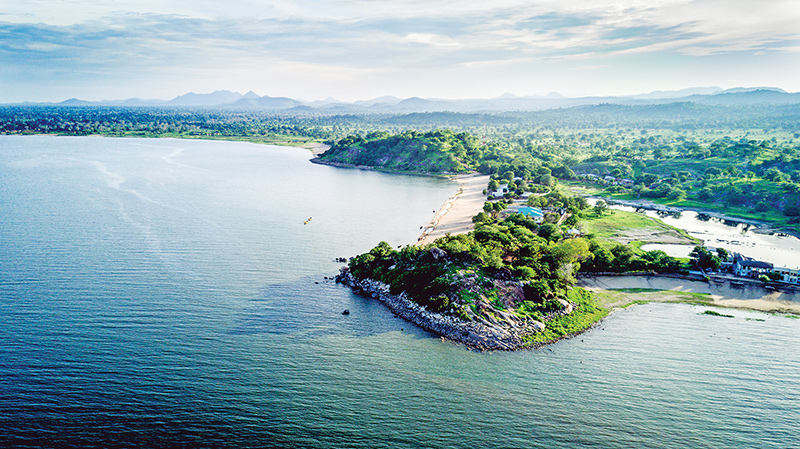
Mine the gap
The president’s second priority is developing the country’s mining industry. Accounting for 1% of GDP in 2017, the sector is still overwhelmingly artisanal. This needn’t be the case, says President Chakwera, for the mineral-rich country is thought to possess considerable deposits of phosphates, bauxite, kaolinitic, coal, kyanite, limestones, uranium, rare earths (including strontianite and monazite), graphite, sulphides (such as pyrite and pyrrhotite), and titanium, according to researchers at the U.S. Department of Commerce. This, say the American experts, makes mining far and away the country’s most promising sector. But it is hardly the only with untapped potential. Blessed as the country is “with wonderful mountains, rivers, lakes, and game,” the president says, not to mention the world’s eighth-largest lake and the Zomba Plateau, one of Africa’s ten-most visited places, the country has also huge tourism potential. “Therefore, we want to attract foreign direct investment and public-private partnerships in order to build the tourism infrastructure. This will generate substantial income for Malawi and boost its economy,” he told Prisma Reports. As part of its broader plan of increasing the mining sector’s output from less than 2% to at least 10% of GDP in coming years, Malawi is also seeking to exploit what could be sizeable stores of rubies, chromium, lead, zinc, potassium, and petroleum.
A third source of opportunity is energy. With a growing population of over 20 million — not to mention a median age of merely 17.2 years — only 10% of Malawians have access to electricity. This, says the president, makes energy “a potential investment portfolio worth billions.” Though the country’s rich system of lakes and rivers mean its traditional source of energy has been hydro, Chakwera is keen on welcoming investments in solar and wind, too. By boosting industry as well as consumption, energy investments would have important knock-on effects for a wide variety of Malawian products. “I look forward to having great trade relations with our neighbors,” President Chakwera told Prisma Reports. “We want to make sure that what Malawi produces can be sold to partners both near and far.” Beyond producing critical inputs such as fertilizers, the best way to help farmers reach (new) markets is better infrastructure. “We aim to rehabilitate the roads and the rail system, as well as building international airports and cities along the lake,” Chakwera stressed. Landlocked by Mozambique, Tanzania, and Zambia, better rail is particularly important, especially given the costs of fuel imports by truck. This is why investments in infrastructure are as welcome as they are promising.
A house built on rock
But infrastructure and foreign investment are only two parts of the equation. As President Chakwera keeps emphasizing, huge steps are also being made to improve governance and root out corruption. “The political leadership must have the political will to have zero tolerance towards corruption,” he told Prisma Reports. “Throughout our history, corruption has been an accepted way of life… but we have declared war on corruption and are enforcing the rule of law.” This means strengthening institutions as much as rooting out bad practices.
The government’s efforts are already paying off. In addition to being named the Country of the Year by the Economist, in October 2020 three of Malawi’s constitutional judges were awarded the prestigious Chatham House Prize for their role in ensuring the integrity of the democratic process in 2019-2020 — first by annulling the results of a deeply flawed election, and second paving the path for a stable and successful re-vote a year later, in the midst of a global pandemic.
Part of this institutional strengthening hinges upon ties forged at home and abroad with both regional and global actors. Not only does Malawi enjoy an old and robust relationship with the U.S.; it is also forging closer ties with China and Israel — the former of which built its parliament in 2010 — in addition to traditional allies such as the U.K. and EU. Closer to home, President Chakwera is also well-placed to strengthen the Southern Africa Development Community (SADC), particularly since he is chairing it this year.
Stable and competitive
Also at the forefront of the country’s efforts to spur investment is the Malawi Investment and Trade Centre, established in the capital of Lilongwe to give investors a one-stop shop to safely and efficiently conduct all their business transactions. In addition to project appraisals and site identifications, the centre is also responsible for all business permits, joint venture facilitation, and local and foreign business retention, among others. “Since we are fighting corruption through the rule of law,” reiterated the president, “we are confident that investors will see that their investments are safe here.”
Chakwera likes to stress that Malawi’s countless intangible benefits mustn’t be forgotten: in addition to its incredible geography astride one of the world’s great waterways, the country also boasts a wonderful, warm, and welcoming population. “We are a peace-loving and friendly people,” Chakwera told Prisma Reports, “and we want to ensure that whoever comes here not only feels at home but will truly be at home.” This is yet another reason why the country seeks to boost its ties and technological and knowledge transfers with partners such as the U.S. “With vast opportunities to learn from those that have much greater experience in relevant fields,” he says, “We want people to have profitable businesses and help Malawians eradicate their poverty in order to take charge of the nation’s path.”
“Africa is a free trade area,” Chakwera reminds a world too often intent on looking inward. “We are geared for business with the rest of the world.” But Malawi is interested in more than multilateralism, he says. “We want to encourage bilateralism, too — with Africans in our region, across the continent, nd with the international community.”
Young, bright, optimistic, conscientious, and hard-working, investors could hardly ask for a better population to bet on. With a government bent on transparency, growth, and good governance — not to mention its most popular in decades, both home and abroad — the time to invest in Malawi has never been better.
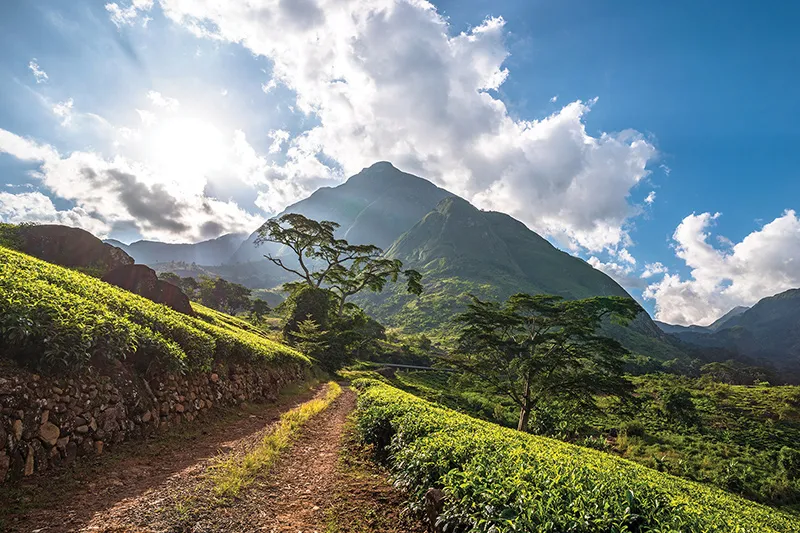
The Road to Shared Prosperity
Finance Minister Felix Lafiel Mlusu discusses the country’s macroeconomic policies and priorities on the road to achieving middle-income status
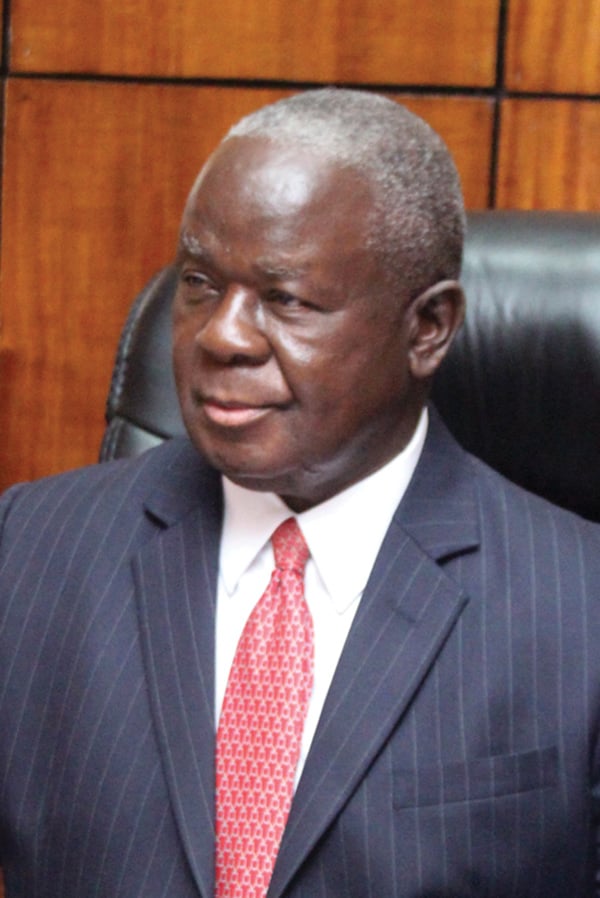
Though hard-headed optimism is too often in short supply, Finance Minister Mlusu is not lacking. As he recently told Prisma Reports: “My immediate priority is to come up with strategies with my team that will tackle recovery and economic growth.” But to do this, “we must bring in the private sector to work alongside the government.” Though hospitality, tourism, airlines, and even education have been severely impacted, the minister says, none of this will stop his government from pursuing its long-term multilateral reforms. These include three key focus areas, Mlusu maintains. First, to drive growth through macroeconomic stability; second, to improve fiscal management and boost revenues by incentivizing businesses to enter the formal economy; and third, to better support the private sector. “We want to encourage people to form associations so that businesses have better synergy and support from the government,” he told Prisma Reports. “Until now, the private sector has not been involved in partnerships with the government. We want to bring in the private sector to work alongside the government so that we can work together to develop the country.” This is why Minister Mlusu is working personally to reassure private sector actors that his government is serious. “We not only want to attract foreign investors, but local ones, too.”
Though Malawi’s Ministry of Finance forecast 4.6% growth in 2021 prior to this third wave, the latter has forced the ministry to redivert funds from investment in infrastructure to social welfare spending, especially for the most vulnerable. And though this year’s maize crop looks promising, output will also depend on rain. This makes attracting FDI all the more important. First, towards the energy sector, after which investments in infrastructure (roads and water) and agricultural commercialization are his top priorities. The government is also ready to support public-private partnerships at every level to boost these sectors. But for now, he says, “Debt forgiveness is the biggest issue we would like to advocate with the international donor community and our partners.”

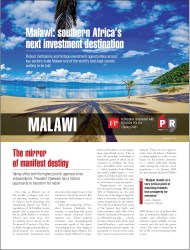 Download the PDF
Download the PDF